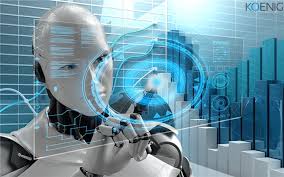Viewing the second hour of In the Age of AI was both informing, yet very concerning. Prior to watching, I was expecting to gain insight into how artificial intelligence is influencing our world, yet I was surprised to feel so in the middle with all of the information. The documentary effectively illustrates both the potential and the risks of this constantly evolving technology.
One of the most beneficial features of AI and machine learning is their ability to assist humanity significantly. The video noted how AI is enhancing healthcare, logistics, and climate studies. Machine learning models can identify illnesses sooner, enhance supply chain efficiency, and even aid in forecasting natural disasters. This type of advancement can preserve lives and conserve resources.However, the negative aspects of AI are difficult to overlook. I was interested in the use of AI for surveillance in various nations. The use of this brings significant worries regarding privacy, such as what occurs when all our activities online or in public are monitored, recorded, and assessed? Though some argue that this can enhance national security, it can quickly transition into authoritarian dominance. The balance between safety and freedom appears to be becoming more pronounced.
Another alarming aspect was the potential for AI to be weaponized, with it being employed not merely for national defense, but for attacking as well. The notion that cyber warfare and AI arms races might disrupt global politics is a perspective I had not deeply thought about previously.
Digital safety and identity fraud are significant issues as well. As AI improves in replicating human actions, such as deep fakes and social manipulation, it is increasingly simpler for cybercriminals to imitate individuals and appropriate identities. If we can’t trust what we view on the internet anymore, how can we safeguard ourselves? One thought that keeps crossing my mind is, how can we strike a balance between innovation and regulation?





No comments:
Post a Comment